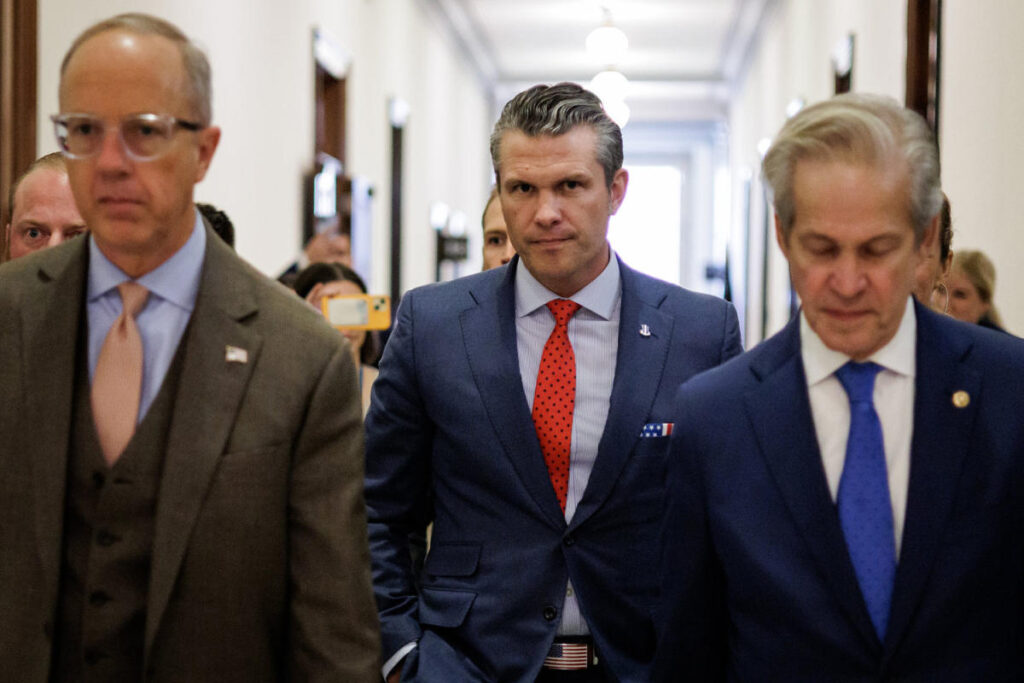President-elect Donald Trump has expressed strong confidence in his choice for Secretary of Defense, Pete Hegseth, despite facing skepticism from certain Republican senators who have raised concerns about various allegations against him. In a post on Truth Social, Trump praised Hegseth’s character and qualifications, highlighting his educational background from Princeton and Harvard, along with his military mindset. Trump confidently labeled Hegseth as a “WINNER,” asserting that he would be a dynamic leader at the Pentagon. This public endorsement signifies Trump’s commitment to Hegseth’s nomination, aiming to unify support from the Republican side as the transition into new administration roles approaches.
Vice President-elect JD Vance has also rallied behind Hegseth, calling attention to his advocacy for the armed forces and emphasizing the need for a leader at the Pentagon who understands the reality of war. Vance criticized the previous leadership at the Pentagon, suggesting they had failed in their responsibilities and expressing optimism that Hegseth would bring a positive change. He reiterated Trump’s backing, claiming that both he and the President-elect are fully committed to ensuring Hegseth’s success and reinforcing their endorsement in the face of doubts from other senators.
Amidst Trump and Vance’s support, some Republican senators have been reticent in their commitment to Hegseth’s nomination. Notably, Senator Joni Ernst from Iowa has maintained a cautious stance following her interactions with Hegseth, describing their meeting as “frank and thorough.” Ernst’s hesitation indicates the presence of a faction within the Republican Party that prefers to evaluate Hegseth more critically, reflecting concerns that may revolve around the allegations that have been levied against him. This uncertainty may pose challenges for Hegseth as he navigates the nomination process.
The allegations against Hegseth are serious, including claims related to sexual assault, excessive alcohol consumption, infidelity, and financial mismanagement. In an effort to address these concerns, Hegseth has taken to media interviews, including a segment with Megyn Kelly, to dispute the allegations against him. He categorically denied the claims of sexual assault and described a specific 2017 encounter as consensual, framing the subsequent settlement he reached with the accuser as a necessary step due to his public profile, even though he maintained there was no wrongdoing on his part. During this exchange, Hegseth also reassured listeners that he has no drinking problems and expressed his resolve to remain alcohol-free if confirmed as Secretary of Defense.
Despite the ongoing discussions surrounding his candidacy, Trump’s earlier considerations to replace Hegseth with other figures like Florida Governor Ron DeSantis or Senator Ernst illustrate the complexities of the nomination process. Ultimately, Trump reaffirmed his support for Hegseth during a phone call, encouraging him to persist amidst the scrutiny and challenges of securing the role. The dynamic between Trump, Vance, and Hegseth demonstrates an effort to consolidate a base of support even as trepidation lingers among certain senators who are critical of Hegseth’s past.
The unfolding scenario reflects broader themes of loyalty, leadership, and the intricate interplay of personal histories in political nominations. As the Senate begins its confirmation process, the tensions between Trump’s vigorous backing of Hegseth and the skepticism from some Republican senators can set the stage for contentious discussions. Hegseth’s ability to address the concerns raised by his critics will be crucial in determining whether he can ultimately assume the role of Secretary of Defense and lead the military during a period of significant geopolitical challenges.

